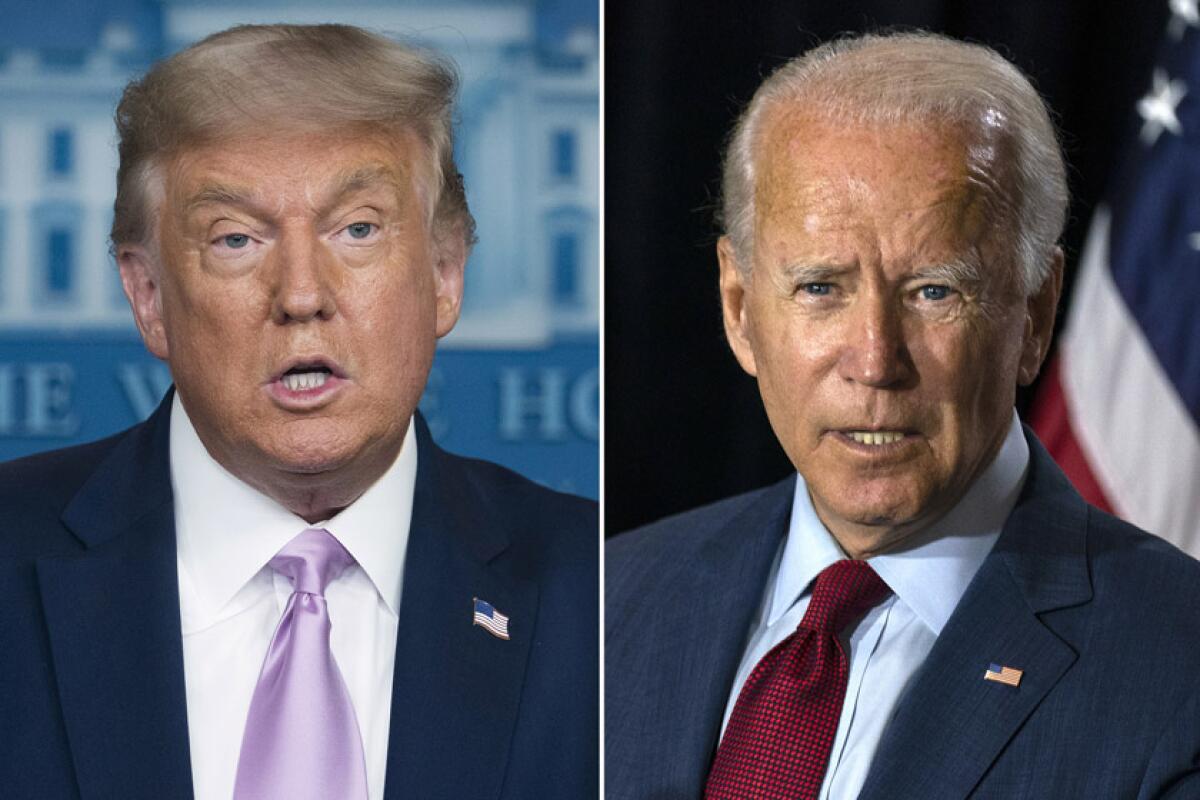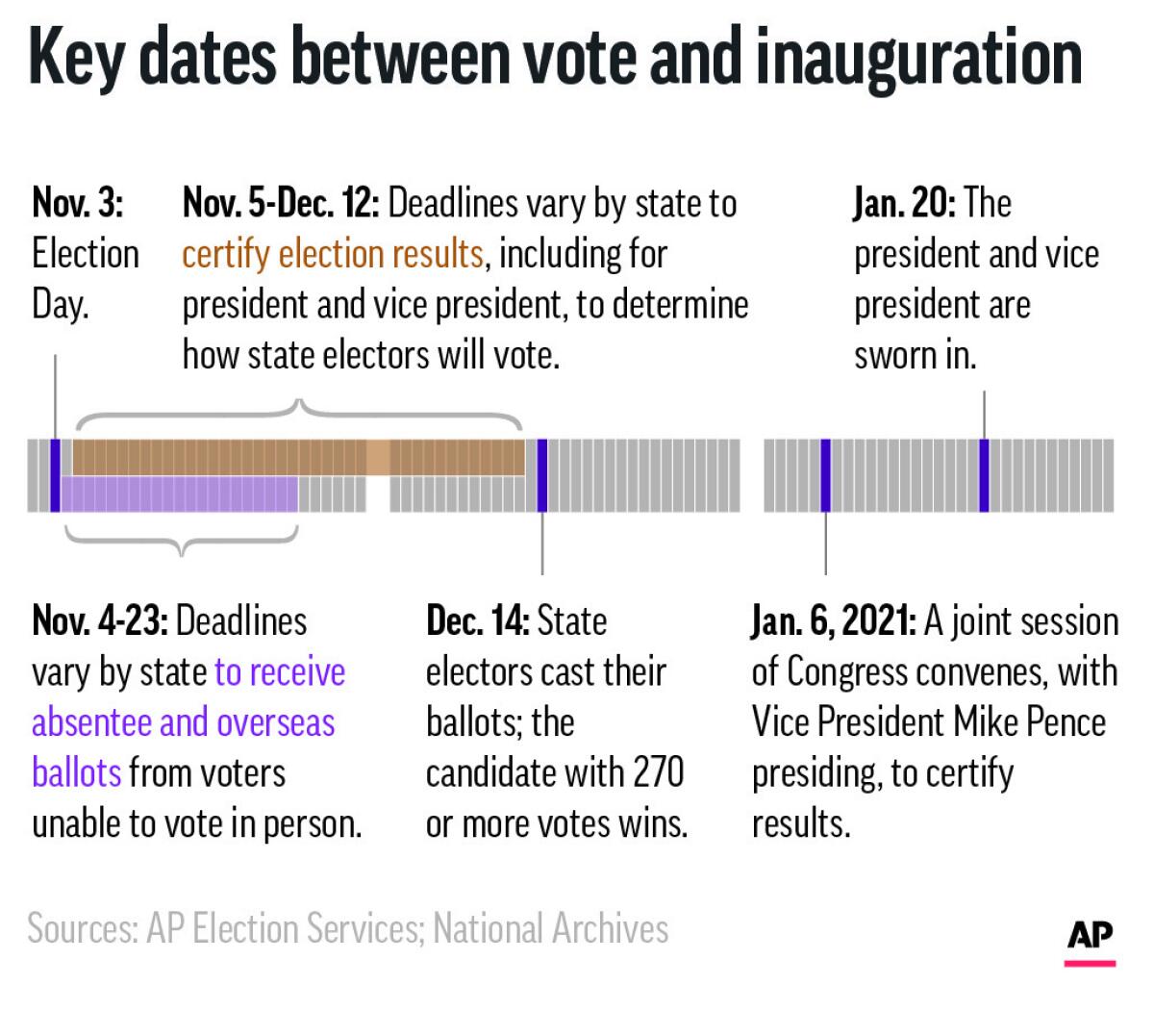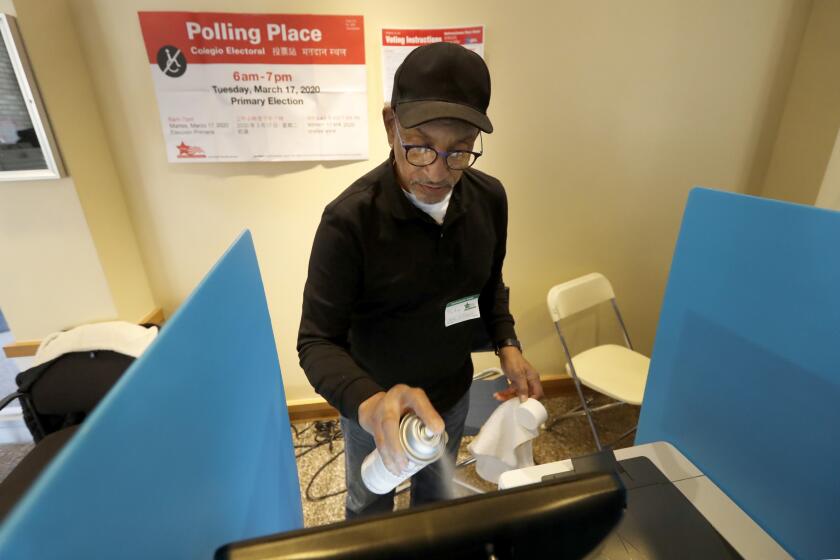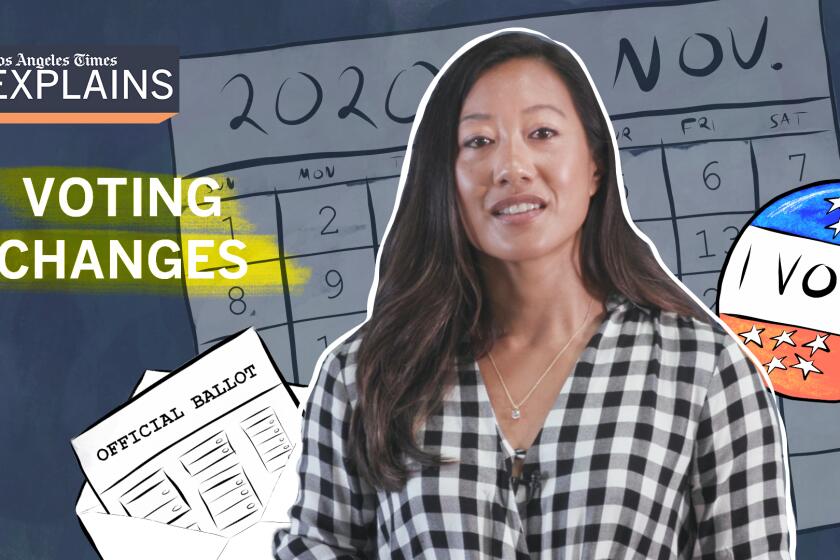What happens if the U.S. presidential election is contested?

- Share via
WASHINGTON — Is it possible the election will be up in the air and we won’t have a president on Inauguration Day: Jan. 20, 2021?
Even if the election is messy and contested in court, the country will have a president on Inauguration Day. The Constitution and federal law ensure it. Here’s what happens after voters go to the polls on Nov. 3:
First, states have more than a month to count ballots, including the expected surge of mail-in ballots, and conduct recounts if necessary. But states’ electoral votes have to be cast on Dec. 14.

Courts will be mindful of that in refereeing any disputes. During the 2000 election, the U.S. Supreme Court ultimately ended Florida’s vote recount, saying time had run out before the states’ electors were required to vote.
When electors meet, the candidate who gets at least 270 of the 538 electoral votes wins. But what happens if election issues still prevent a winner from being named? The Constitution has an answer.
The November election date is set by law, and the president can’t postpone it or extend his term. But there are a lot of other questions about conducting an election in the midst of a pandemic.
The 12th Amendment says that in that case, the House of Representatives elects the president and the Senate elects the vice president. The new Congress that enters in January is the one tasked with carrying out the so-called “contingent election.” The president has only been selected this way once, in 1825. The winner was John Quincy Adams.
More Californians will vote by mail this year because of the coronavirus. Here’s how it works.
In a contingent election, House members have to choose among the three people with the most electoral votes. Each state delegation gets one vote, and 26 votes are required to win. In the Senate, the choice is between the top two electoral vote-getters and each senator gets a vote, with 51 votes required to win.
What if that fails and the House hasn’t elected a president by Inauguration Day? Then the 20th Amendment takes over. It says the vice president-elect acts as president until a president is picked.
And if there’s no vice president selected by Inauguration Day either? Then, the Presidential Succession Act applies.
It says that the speaker of the House of Representatives, the Senate president or a Cabinet officer, in that order, would act as president until there’s a president or vice president.
More to Read
Get the L.A. Times Politics newsletter
Deeply reported insights into legislation, politics and policy from Sacramento, Washington and beyond. In your inbox three times per week.
You may occasionally receive promotional content from the Los Angeles Times.












